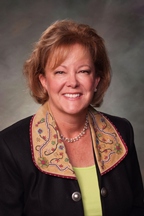By Jeffrey A. Roberts
CFOIC Executive Director
As KUSA-TV’s Chris Vanderveen pointed out last week, the public has no right to know how much the state public defender’s office is spending to keep James Holmes, the Aurora movie theater shooter, from the death penalty.
That’s because Colorado’s courts have exempted the entire state judicial department from the Colorado Open Records Act (CORA). In Gleason v. Judicial Watch, the state Court of Appeals in 2012 affirmed a previous ruling by the Colorado Supreme Court, concluding that “CORA does not include the judiciary within the terms ‘state’ and ‘state agency.’”
This means it’s up to the judicial branch itself to decide whether to release information on how it spends taxpayer dollars.
HB 15-1101 attempts to address part of this problem. The bipartisan bill, sponsored by Republican Rep. Polly Lawrence of Douglas County and Democratic Rep. Rhonda Fields of Aurora, would make the records of the state public defender and the office of alternate defense counsel subject to CORA, except for privileged attorney-client records, as defined by the proposal.

Rep. Polly Lawrence
“I’ve gotten a lot of inquiries regarding the James Holmes trial,” Lawrence told the CFOIC. “A lot of press agencies have been trying to get information – not specific attorney-client information, but just how certain resources are being allocated in the public defender’s office.
“I have always felt very strongly that any agency that uses taxpayer dollars should give us at least basic information about how they’re utilizing those dollars.”
HB 15-1101 wouldn’t open the administrative records of other judicial branch agencies such as the Colorado Commission on Judicial Discipline and the State Court Administrator’s office. Lawrence said she included only the public defender’s office and the office of alternate defense counsel (which represents indigent defendants in cases where the public defender has a conflict of interest) because most news media inquiries have focused on those agencies.
“I certainly would be willing to look at any state agency that is not complying with CORA requests and being as transparent as they possibly can with the public about the use of taxpayer resources,” she added.
Lawrence said she also will look into concerns about language in the bill raised by CFOIC President Steve Zansberg and CFOIC Past President Tom Kelley, attorneys for the Colorado Press Association. As drafted, they said, HB 15-1101 would substantially broaden what is now a narrowly defined provision in CORA that exempts attorney-client communications and attorney work product. The expanded definition would apply to all government agencies, not just the two mentioned in the bill.
“It broadens the scope of what (Lawrence and Fields) purport to render exempt from disclosure,” Kelley said.
The CFOIC has been unable to get a comment on HB 15-1101 from the office of State Public Defender Doug Wilson.
The bill has been assigned to the House Judiciary and Appropriations committees. A hearing has not yet been scheduled.
Follow the Colorado Freedom of Information Coalition on Twitter @CoFOIC. Like CFOIC’s Facebook page. Do you appreciate the information and resources provided by CFOIC? Please consider making a tax-deductible donation.




